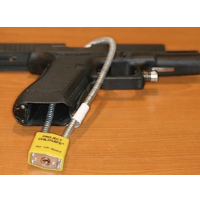8-Year-Old Law Protects Gun Makers from Lawsuits by Shooting Victims

An eight-year-old federal law passed to forestall a raft of lawsuits by America’s big cities against gun makers for creating a “public nuisance” by encouraging the proliferation of weapons is now being used to quash otherwise legitimate lawsuits by shooting victims for wrongful conduct by weapons manufacturers and dealers. Last week, Rep. Adam Schiff (D-California) introduced legislation, the Equal Access to Justice for Victims of Gun Violence Act, to make it easier for suits against the gun industry to proceed.
Under heavy pressure from the National Rifle Association (NRA) in 2005, Congress passed the Protection of Lawful Commerce in Arms Act (PLCAA), which makes licensed manufacturers, distributors, and dealers of firearms immune in state and federal court from civil liability in most negligence and product liability actions. The NRA then launched a “corporate partnership” drive targeting weapons makers that has raked in between $14.7 million and $38.9 million, according to a 2011 study by the Violence Policy Center. Nonetheless, the NRA’s website claims “it is not affiliated with any firearm or ammunition manufacturers or with any businesses that deal in guns and ammunition.”
Supporters of the law contended that it would prevent lawsuits against gun makers for the gun crimes of others, but leave others alone. Bill sponsor Sen. Larry Craig (R-Idaho) even stated on the Senate floor that “This bill will not prevent a single victim from obtaining relief for wrongs done to them by anyone in the gun industry.”
In fact, gun makers and dealers have persuaded courts around the country that the PLCAA requires them to dismiss numerous cases, including where the gun maker or dealer acted in a manner that would be defined as negligent if it involved any other product.
In the case of Adames v. Beretta (2009), for example, the family of a child accidentally killed by his 13-year-old friend who was playing with his father’s loaded pistol, sued Beretta on the grounds that its design of the pistol was defective because of the absence of a common safety feature that would have prevented the accident and the inadequacy of another feature. Despite the testimony of three expert witnesses, the Illinois Supreme Court rejected the case, accepting Beretta’s argument that the company was protected by the PLCAA legal shield.
“It makes no logical sense. . . . If their wallets were threatened, they would have a greater interest in making firearms safer,” Veronique Pozner, whose 6-year-old son, Noah, was one of the 20 children killed at Sandy Hook, told reporters. Pozner is exploring a possible lawsuit against the maker of the semiautomatic rifle used in the crime, alleging its failure to install a high-tech safety device that could have prevented Adam Lanza from firing the gun was negligent.
Those who support such lawsuits argue that product liability law has been a successful way of bringing about safety improvement in consumer products, like the seatbelts and airbags that became standard equipment only after years of suits against the auto industry. They would like to use the law to force gun makers to add currently available safety features that would prevent accidental shootings or allow a gun to be fired only by its licensed owner.
-Matt Bewig
To Learn More:
NRA-Backed Federal Limits on Gun Lawsuits Frustrate Victims, their Attorneys (by Tom Hamburger, Peter Wallsten and Sari Horwitz, Washington Post)
Schiff Introduces Two New Bills Dealing With Gun Violence (by Craig Sherwood, Burbank n Beyond)
NRA Gun Control Crusade Reflects Firearms Industry Financial Ties (by Peter H. Stone and Ben Hallman, Huffington Post)
- Top Stories
- Unusual News
- Where is the Money Going?
- Controversies
- U.S. and the World
- Appointments and Resignations
- Latest News
- Trump to Stop Deportations If…
- Trump Denounces World Series
- What If China Invaded the United States?
- Donald Trump Has a Mental Health Problem and It Has a Name
- Trump Goes on Renaming Frenzy






Comments